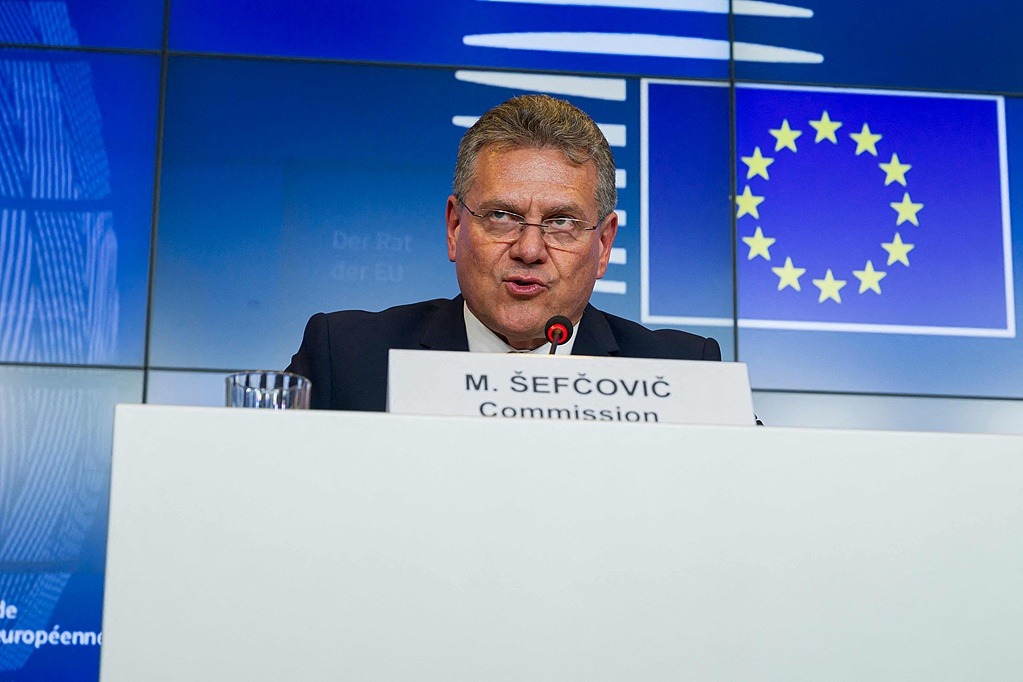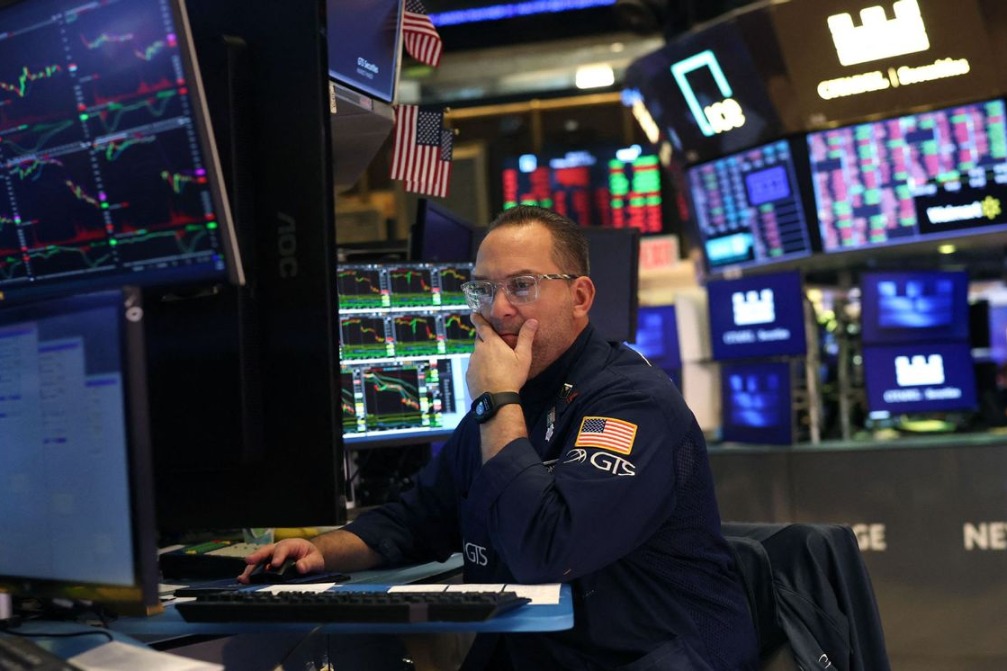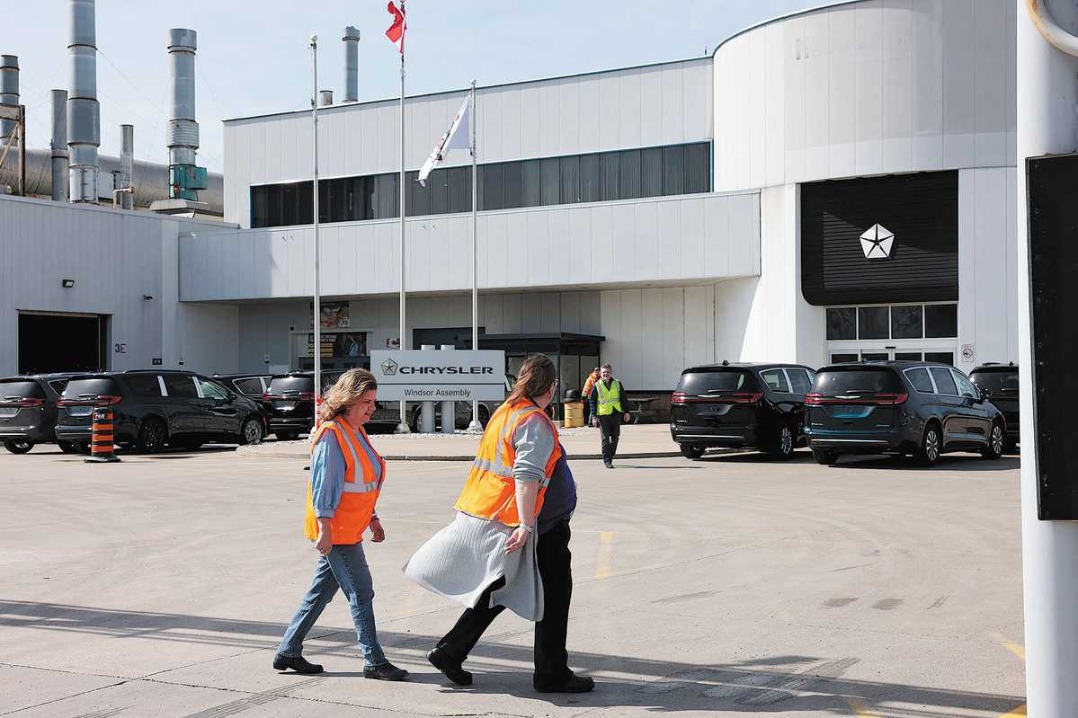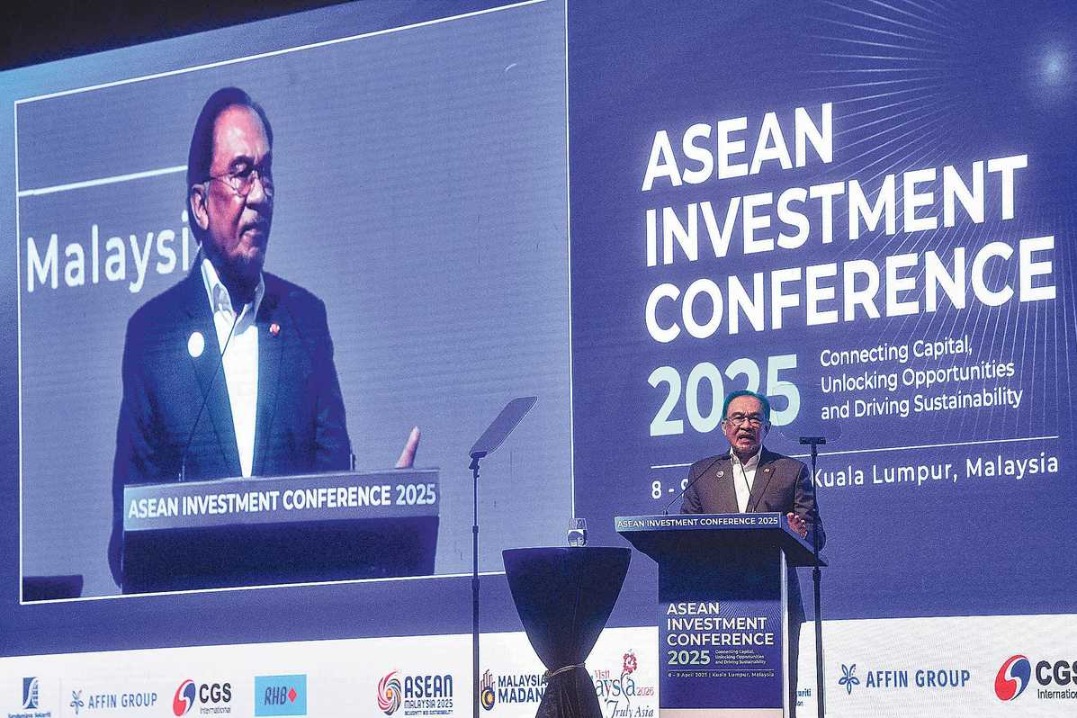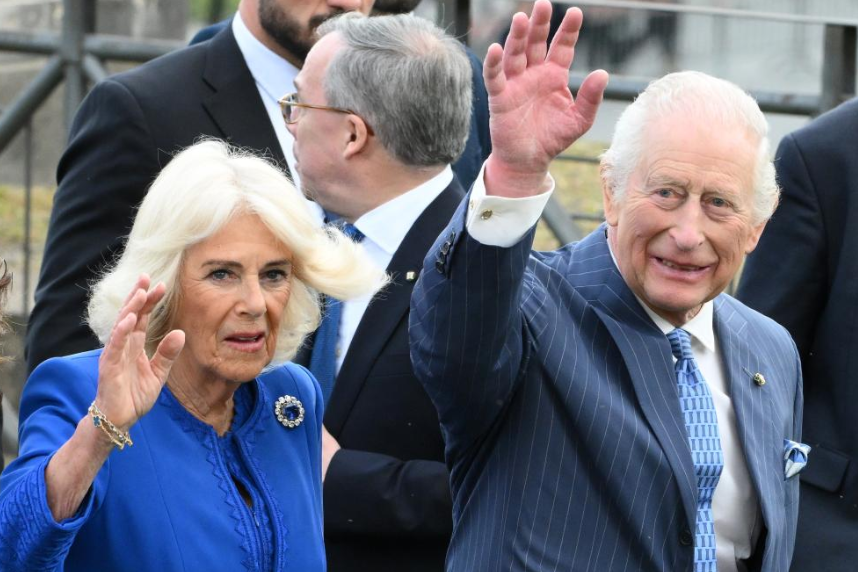EU ministers cautious over hike in tariffs
Bloc members focused on negotiation while preparing for countermeasures

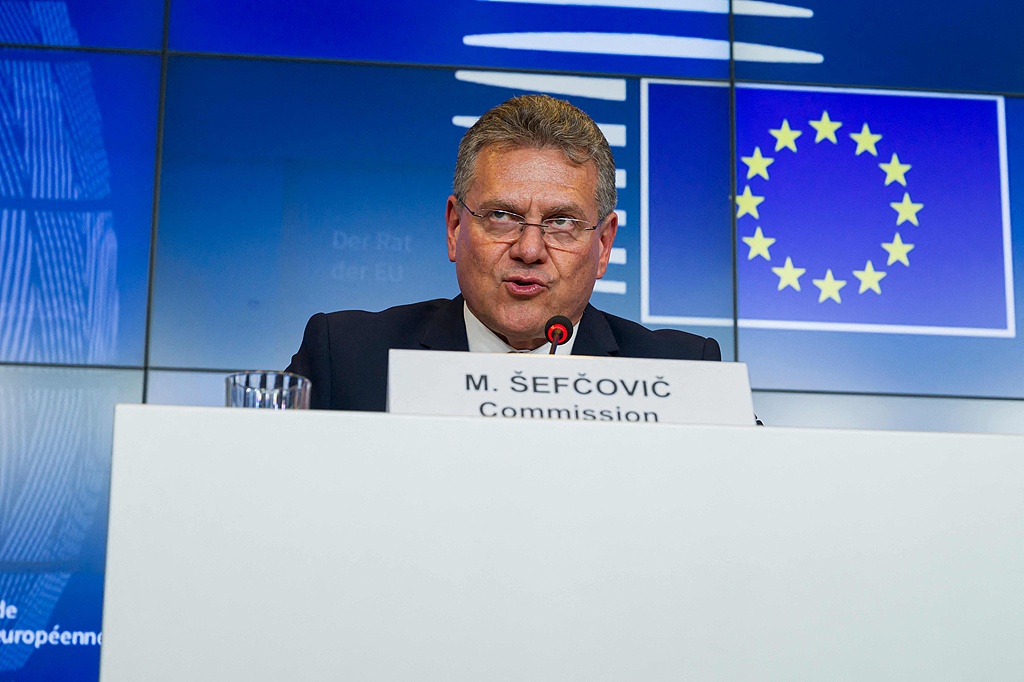
European Union trade ministers struck a cautious tone after their meeting in Luxembourg on Monday, resisting immediate retaliation against the United States' "reciprocal tariffs" and warning that "there are no winners" in a trade war.
The 27-nation bloc faces extensive US tariffs, including 25 percent duties on steel, aluminum and cars, plus 20 percent "reciprocal tariffs" on most other goods starting on Wednesday, though officials stressed they remain focused on negotiating a solution rather than matching all US measures.
Speaking at a news briefing after the meeting, EU Trade Commissioner Maros Sefcovic said the EU and the US are "in the early stages of discussions" that are complicated "because the US view tariffs not as a tactical step, but as a corrective measure".
He said the two sides agree that the EU-US trade relationship "could benefit from a fresh look and a boost in strategic areas", noting that both "face similar challenges".
Sefcovic added that the focus has been on finalizing steel and aluminum countermeasures, though the announcement of the new "so-called reciprocal tariffs … forces us to look at additional steps".
"After carefully reviewing all of it, we have worked to table a robust list of countermeasures, while balancing the burden across all member states," he said.
A member-state vote is set for Wednesday, with the final list set to be adopted on April 15, he added. "Duties on products will kick in on that day for the first set of measures, and on May 15 for the remaining ones."
As the EU trade ministers arrived for the crucial talks, they offered differing perspectives to reporters, highlighting the complex challenge of forming a unified response.
Robert Habeck, Germany's economy minister, emphasized that the EU could maintain a strong stance against the US, provided the member states present a unified front.
"The stock markets are already collapsing and the damage could become even greater. It is therefore important … to act clearly and decisively and prudently, which means realizing that we are in a strong position," Habeck said.
Laurent Saint-Martin, the French minister for foreign trade, advocated for potentially "extremely aggressive" countermeasures to the sweeping tariffs. "We must not exclude any option on goods, on services… and open the European toolbox, which is very comprehensive," he said, referring to the EU's anti-coercion instrument.
Reinette Klever, the Dutch minister for foreign trade and development, called for a measured approach, saying, "We need to get ourselves at the table with the Americans and see how we can lower these tariffs."
European Commission President Ursula von der Leyen reiterated that US tariffs would only harm US consumers and emphasized that "Europe is always ready for a good deal". She said the bloc stands prepared to implement countermeasures and strengthen its single market, if necessary.
Von der Leyen also offered a deal on Monday to remove tariffs on all industrial goods as part of the trade talks. "We stand ready to negotiate with the US. Indeed, we have offered zero-for-zero tariffs for industrial goods as we have successfully done with many other trading partners," she said.
'Not enough'
Asked by a reporter whether the zero tariff offer was enough for him to back down, US President Donald Trump said, "No, it's not."
He suggested that the EU should commit to buying $350 billion of US energy to get a reprieve from his sweeping tariffs. "We have a deficit with the European Union of $350 billion and it's gonna disappear fast," Trump said.
Fabian Zuleeg, chief executive and chief economist at the European Policy Center, said on Monday: "It's difficult to know how to respond (to the US tariffs) because it is unprecedented. What we've seen is the cancellation of decades-long principles that have guided international trade by the biggest economy, by the main proponent of that system.
"But it is going to be a question over weeks, over months, also with always the possibility of an escalation if the EU responds. So it's going to be a difficult process," he said.
Moreno Bertoldi, a senior associate research fellow at the Geoeconomics Center of the Italian Institute for International Political Studies, and Marco Buti of the European University Institute and a former European Commission official wrote in a joint article that "the claim that a trade war with the US is best avoided is valid. But Trump has already started the war".
"The real question then is whether Europe should surrender without a fight, hoping for the unlikely benevolence of the victor, and validating its disdain for a weak and divided EU, or whether it should fight back, while remaining open to negotiation, in order to truly seek a solution to the trade war," they said in the article, published on the Bruegel think tank's website.
"Bending the knee to the tyrant will most likely encourage the tyrant to ask for more. Therefore, if the aim is to end an economically devastating conflict as quickly as possible, the EU must risk responding in kind to US tariff aggression," they added.

















